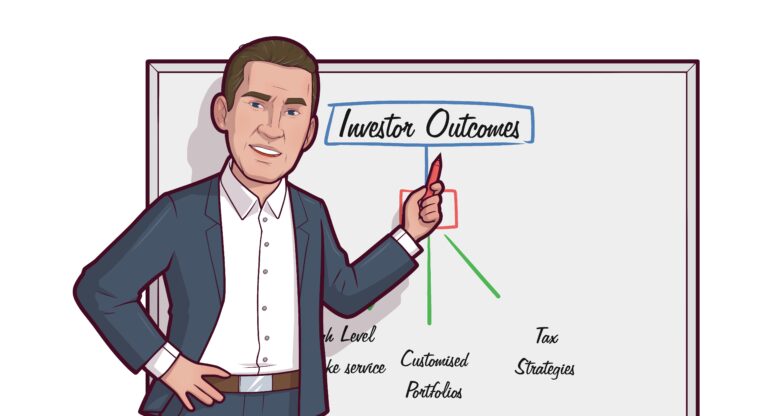The big news today is the return of Donald J. Trump to as 47th President of the USA.
Poll’s had it too close to call.
But the betting markets had it right. Which likely shows that when people are willing to bet real money on an outcome, they have a better thought process than an uncommitted recipient of a cold call survey.
What does it mean economically for the US, Australia, and indeed the World?
Let’s first think about the first order impacts.
- Lower corporate taxes in the USA
- Tax cuts for US taxpayers
- Reduced government spending (maybe)
- Add a 10% tariff to all non-domestic goods sold in the US
- Add a 25% tariff on all Mexican produced cars
- Potential high tariffs on China
- End the Russian war on Ukraine
- Deport illegal immigrants
- Eliminate electric car mandates
- End offshore wind developments
- Promote US based oil and gas
- Reduce back ‘big pharma’ influence (via RFK)
The list is not exhaustive, but it gives us a start in considering the impacts.
If you cut taxes without a corresponding fall in government spending, then the result is a higher budget deficit. The US already has deficits higher than some emerging economies, and that is in good times.
While the Republicans may take control of the Senate this term, and make It easier to force through legislation, it is hard to imagine that government spending cuts will match the tax reduction.
So, higher deficits for longer. Normally bad for an economy, but I think they will kick this can way down the road. The grown-ups in the room may wince at the prospect of deficits as far as they eye can see, but equity markets only live for the next profit reporting period.
More money in peoples pockets means… Higher Inflation, or sticky inflation at least, for longer. That means rates don’t come down as quickly as some had hoped.
Higher interest rates (vs rest of world) means that the currency (USD) stays stronger, at least until the deficits become more extreme, or the US ceases to be the world’s reserve currency.
Market Action
Capital markets had already been expecting this outcome. Equities have been strong. Additionally, even though the Federal Reserve cut the target Cash Rate to 4.75% – 5.00% range, the ten year bond yield has increased. As mentioned in the post on 13 October, we pointed out that the two year US bond yield increased by 0.50% since the cut.
Since 17 September, the US ten year bond yield has gone from 3.60% up to 4.42% on November 6th Australian time. That’s up 0.82% in less than 2 months.
During the day of vote counting, when a Trump victory became more certain, the ten year yield spiked up 20bps in 3 hours.
Fade the rally
Before anyone gets too excited by the ‘chase’ let’s also sound a word of caution.
Markets have already been anticipating a Trump win.
On the realisation there has been a further rally in the expected markets.
But often, it is wise to ‘fade the pop’ which means selling into the strength in some of these markets.
Bitcoin was a big beneficiary when it became apparent that Trump would be back in the White House. It rallied from $68,730 at 9AM (NY time) on Election Day, to be $75,000 by 10.00PM on Election day.
However, Bitcoin then faded, to be down to $73,621 five hours later.
So with any new ideas, we need to be careful not to ‘chase’.
Markets have been expecting the Trump win, even if pollsters said it was too close to call. That means that markets can fall as people take short term profits.
What are the longer term implications?
Drug Companies are on watch.
US Financial companies may do well operationally, but even without that, lower taxes means higher profits.
Real Assets, with inflation protection built in will do well. However, many of these like infrastructure assets, have high levels of gearing, and higher interest rates can take a big chunk out of their net earnings. Gearing levels will be a critical factor for success.
Gold, Silver, Copper and materials in general should go higher.
China may have to apply even greater stimulus to ‘reflate’ their economy. This could be good for iron ore and copper.
Speaking of China, it is more likely that they take Taiwan at some point, as Trump is seen as likely to protect USA borders than be involved in the sovereignty of an island just a few miles from China.
Supply chain disruptions could occur as a result of China tariffs or a Taiwan takeover.
US Dollar stronger.
US short term rates stay higher to fight the inflation caused by more money in public pockets.
Australian rates probably stay higher for longer.
Higher rates (eventually) break the economy. Then suddenly the aura is gone, and people realise you don’t get ‘something for nothing’. We continue to monitor credit spreads for any signs of a breakdown in the economy, but at they moment they are telling us that there is no recession in the near future.
As we navigate all these possibilities, remember that investing is hard, even when you think you know the future.

